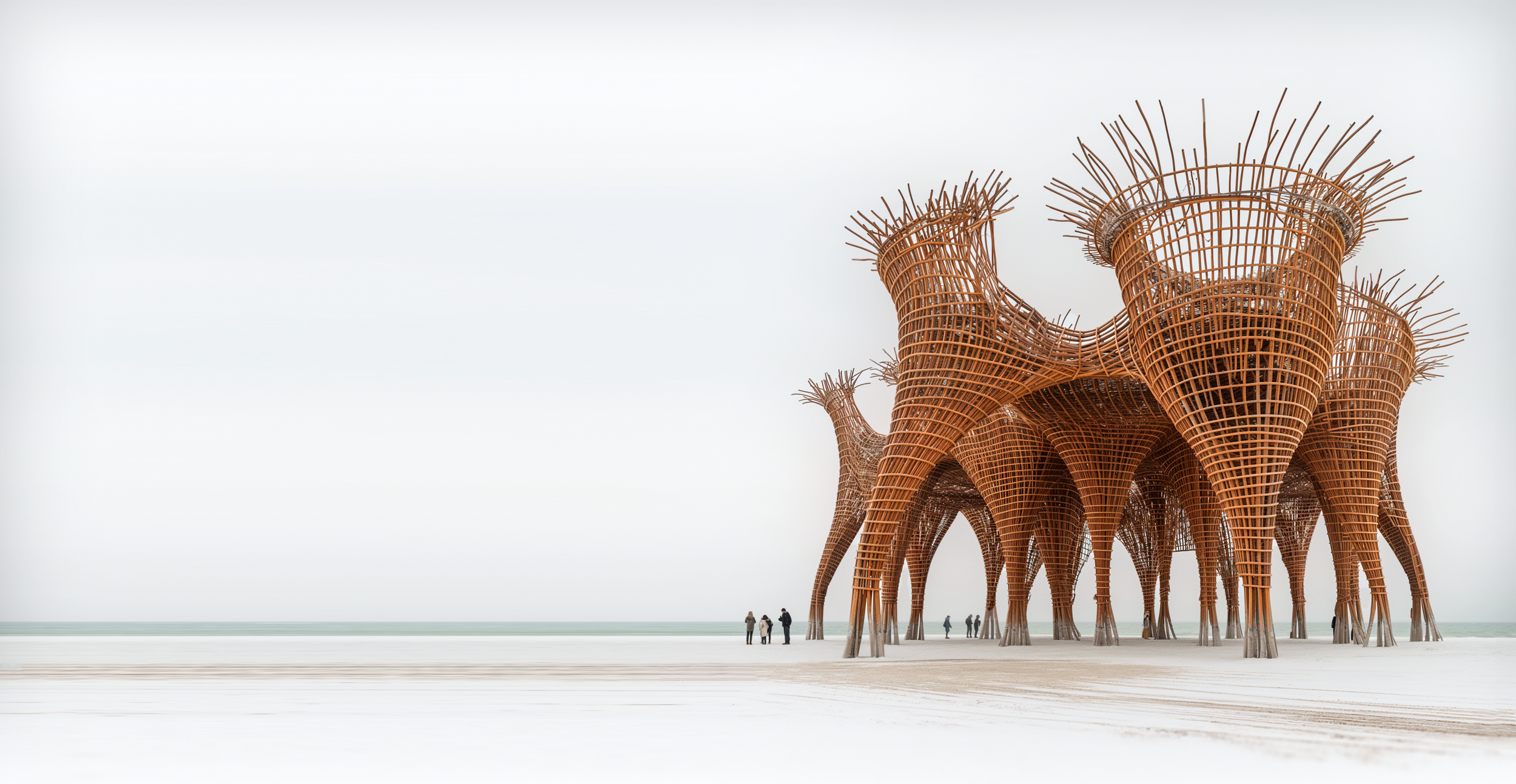
Developing Propositional Research Methods
The Laboratory for Material Propositions explores four interconnected areas of research to address complex global challenges in our shared built environment: affective environments, collaborative intelligence, cultivated ecologies, and material futures. Together, these research areas form a dynamic framework for experimentation, collaboration, and impact. Learn more below.
Research
This design research focuses on material affects, exploring how material choices profoundly influence the design of objects, spaces, atmospheres, and behaviors. Investigating the sensory, emotional, and experiential dimensions of materials, this interdisciplinary exploration seeks to optimize their impact on design outcomes. In the realm of objects, the research examines how material selection shapes the tactile, visual, and auditory qualities of artifacts. Spatial design analysis involves understanding how materials contribute to the overall atmosphere, creating environments that elicit specific moods. The study extends to atmospheric design, exploring the interplay of materials with light, sound, and other environmental factors. Additionally, the research considers how material choices influence user behaviors, aiming to intentionally shape human interactions and experiences within various contexts. This comprehensive investigation aims to provide valuable insights for crafting aesthetically pleasing, resonant, and responsive designed environments.
Affective Environments
Collaborative Intelligence examines the emergence of novel approaches to the built environment through cooperative processes involving diverse entities, including humans, non-humans, technologies, and ecosystems. This research emphasizes innovation and collective authorship by developing frameworks for collaborative design and production. By integrating multiple perspectives and capabilities, collaborative intelligence redefines traditional design hierarchies, fostering inclusive participation and advancing sustainable practices within architectural, landscape and urban contexts. This agenda explores interactions among varied agents to identify mechanisms driving innovation, evaluates methodologies for shared spatial creation, and develops tools and ethical frameworks to optimize collaborative processes. Through interdisciplinary inquiry and experimental prototyping, this work reimagines the design and production of the built environment by leveraging the transformative potential of collective authorship, shaping equitable and resilient spaces for future communities.
Collaborative Intelligence
The design-research focus on Cultivated Ecologies intricately explores the convergence of food systems, cultural identity, expression, environmental and cultural sustainability, landscapes, and craft. This multidimensional investigation seeks to understand how these components intersect and influence each other within the broader context of design. By examining the relationships between food and culture, the research aims to unveil sustainable practices that integrate environmental considerations and celebrate diverse cultural expressions. The inclusion of landscapes and craft further enriches the exploration, emphasizing the interconnectedness of design, nature, and cultural heritage. Cultivated Ecologies strives to formulate design strategies that not only promote environmental well-being but also honor and preserve the intricate tapestry of cultural identities woven into the fabric of food, landscapes, and craft. Through this comprehensive approach, the research endeavors to contribute to the development of holistic, sustainable design solutions for the future.
Cultivated Ecologies
Material Futures comprises a research agenda dedicated to investigating and understanding material network assembly systems. This includes their physical, cultural and affective life cycles. Our focus lies in exploring how these systems can be intervened in to create more environmentally and socially conscious designed objects, territories, and environments. Through interdisciplinary collaboration and rigorous inquiry, this agenda aims to unravel the complex interplay between materiality, sustainability, and social responsibility. By examining the entire lifecycle of materials, from extraction to disposal, opportunities for innovation and intervention are sought to promote sustainable practices and reduce environmental impact. Additionally, the agenda acknowledges the cultural dimensions of materials and their influence on identities, values, and social relations. The overarching goal is to drive real-world change by envisioning and implementing thoughtful design interventions.
